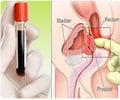The management of low risk prostate cancer tends to vary between radiation oncologists and urologists

How the Study Was Conducted: Authors analyzed data from a group of men (ages 66 years and older) with low-risk prostate cancer (diagnosed from 2006 through 2009) to examine the impact of physicians on disease management.
A total of 2,145 urologists diagnosed low-risk prostate cancer in 12,068 men during the study period, of whom 80.1 percent received treatment and 19.9 percent were observed. Observation varied widely across urologists from 4.5 percent to 64.2 percent of patients. Urologists who treat non-low-risk prostate cancer and graduated less recently from medical school were less likely to manage low-risk disease with observation. Patients were more likely to undergo medical interventions, including prostatectomy or external-beam radiotherapy, if their urologist performed that procedure. Rates of observation varied across consulting radiation oncologists from 2.2 percent to 46.8 percent.
"We postulate that the diagnosing urologist plays an important role in treatment selection because he or she is the first to convey the diagnosis to the patient and discuss disease severity and management options."
Authors made conflict of interest disclosures. This study was supported by grants from the Cancer Prevention and Research Institute of Texas and other sources. Please see the article for additional information, including other authors, author contributions and affiliations, financial disclosures, funding and support, etc.
 MEDINDIA
MEDINDIA


 Email
Email





![Prostate Specific Antigen [PSA] Prostate Specific Antigen [PSA]](https://www.medindia.net/images/common/patientinfo/120_100/prostate-specific-antigen.jpg)




